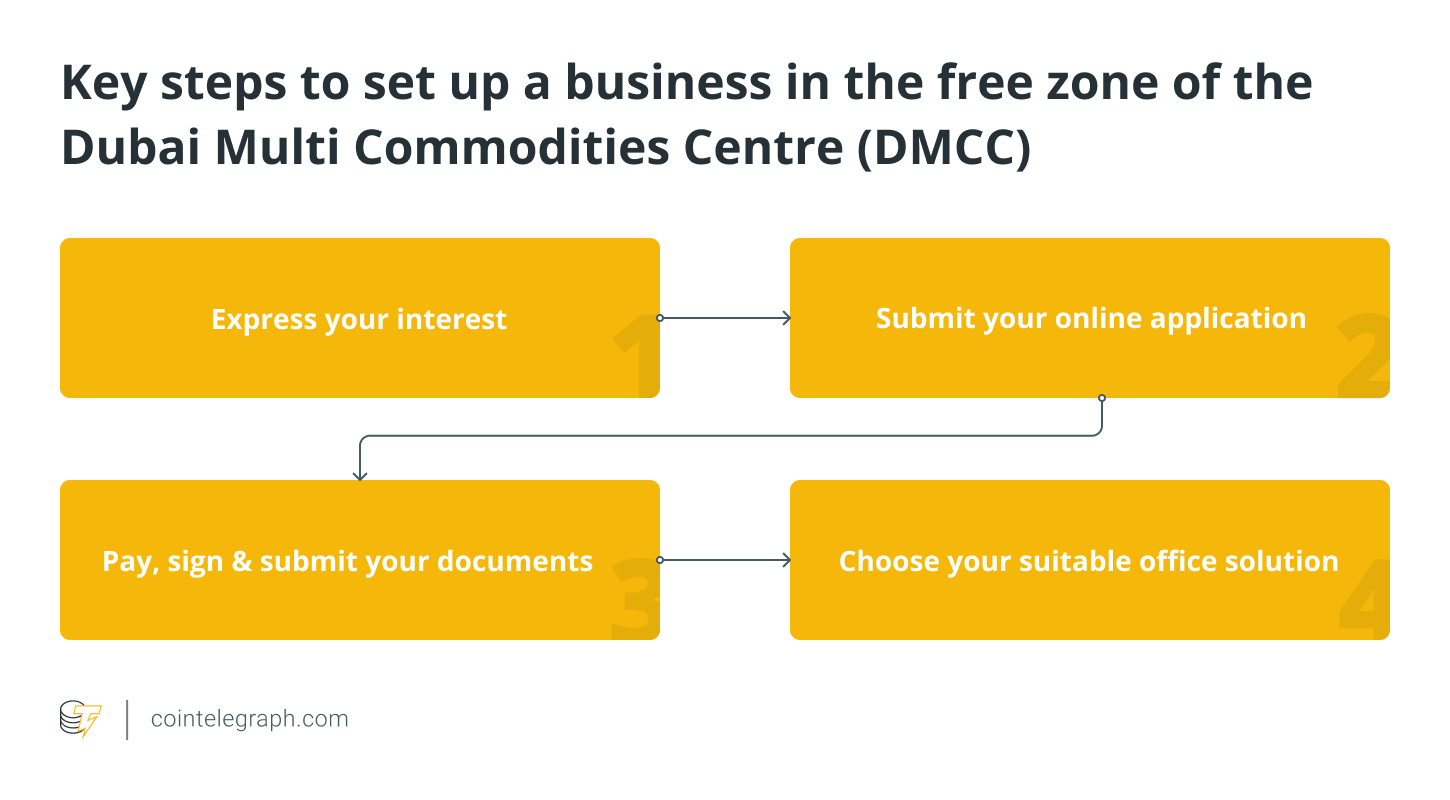Countries lead blockchain adoption for various reasons, including recognizing its potential to transform multiple sectors of the economy, promoting innovation and economic growth, and creating a favorable regulatory environment to attract blockchain businesses.
Các loại cộng đồng blockchain dẫn đầu việc áp dụng blockchain
Blockchain communities refer to groups of individuals, organizations and companies involved in developing and using blockchain technology. These communities form to share knowledge, collaborate on projects and advance the adoption of blockchain technology.
There are different types of blockchain communities, including:
- Developer communities: These groups of blockchain developers work together to create protocols, programs, smart contracts and other blockchain-based projects.
- Industry communities: Communities developed around specific industries or sectors, such as banking, healthcare and supply chain management, are known as industry communities. Members of these communities work together to create blockchain solutions that can handle the particular problems faced by their respective sectors.
- User communities: Individuals that use blockchain-based goods or services make up these communities. They exchange information and offer feedback to enhance the usability and functionality of blockchain goods.
- Investment communities: These groups have grown around blockchain-based ventures like cryptocurrency or startups that use the technology. Members of these communities engage in due diligence projects, exchanging knowledge and views about potential investment opportunities.
- Social impact communities: These groups are focused on leveraging blockchain technology to solve problems in the social and environmental spheres. Members of these communities work together to develop blockchain solutions that could create a more just and sustainable world.
Countries leading blockchain adoption
Công nghệ Blockchain có khả năng tăng năng suất, bảo mật và minh bạch của nhiều ngành công nghiệp, giảm chi phí và nâng cao trải nghiệm của khách hàng. Do đó, các quốc gia đang đầu tư phát triển và sử dụng công nghệ blockchain để giải quyết các mối quan tâm xã hội và kinh tế khác nhau.
El Salvador
El Salvador đã nổi lên như một nhà tiên phong toàn cầu trong việc áp dụng công nghệ blockchain sau khi trở thành quốc gia đầu tiên công nhận Bitcoin là một đấu thầu hợp pháp. Tháng 6 năm 2021, chính phủ El Salvador đã thiết lập một đạo luật công nhận Bitcoin là một phương thức thanh toán hợp pháp cho hàng hóa và dịch vụ bên cạnh đồng đô la Mỹ, đồng tiền hợp pháp của quốc gia. Thông qua nỗ lực này, chính phủ nhằm mục đích ưu tiên bao gồm tài chính trong nước, nơi 70% người lớn không có tài khoản ngân hàng.
Việc chấp nhận Bitcoin (BTC) có thể làm cho El Salvador trở thành một địa điểm mong muốn cho các nhà đầu tư quốc tế, một lợi ích được đề cập bởi chủ tịch nước này, Nayib Bukele. Để khuyến khích việc áp dụng Bitcoin rộng rãi, chính phủ đã thực hiện một số hành động. Quỹ ủy thác 150 triệu USD trong ngân hàng phát triển nhà nước — Banco de Desarrollo de El Salvador — đã được ủy ban tài chính của cơ quan lập pháp phê duyệt vào tháng 8 năm 2021. Nó được tạo ra để cho phép tự động chuyển đổi Bitcoin sang đô la Mỹ, tạo điều kiện trao đổi dễ dàng giữa hai loại tiền tệ cho người Salvador.
Quốc gia ra mắt chiếc ví Chivo (tiếng lóng cho “mát mẻ”) vào tháng 9 năm 2021. Mỗi ví chứa $30 trong BTC. Chính phủ đã thiết lập một mạng lưới các máy rút tiền tự động crypto (ATM) tại El Salvador và 50 thành phố khác của Hoa Kỳ, giúp việc gửi tiền cho gia đình họ dễ dàng hơn.
Năm 2022, sự sụp đổ của thị trường crypto ảnh hưởng xấu đến giá Bitcoin, làm tăng mối lo ngại cho đất nước Trung Mỹ đã đầu tư rất nhiều vào tiền điện tử. Tuy nhiên, Bukele không thể hiện sự lo ngại và ngược lại, cam kết mua trung bình chi phí đô la một BTC mỗi ngày để xác nhận hỗ trợ tiếp tục và đầy đủ cho tài sản kỹ thuật số.
liên quan: Đô la chi phí trung bình (DCA) là gì, và nó hoạt động như thế nào?
Vào tháng 1 năm 2023, El Salvador ban hành Luật Phát hành Tài sản kỹ thuật số, thiết lập các thông số cho một “Volcano Bond” — trái phiếu được hỗ trợ bởi Bitcoin.
Bồ Đào Nha
Portugal has proactively created a favorable environment for blockchain and cryptocurrency startups. The nation has actively used blockchain technology in public services, healthcare and supply chain management. The Blockchain Panorama platform — which intends to encourage information exchange and cooperation among participants in the blockchain business — was introduced by the Portuguese government in 2019.
Kể từ đó, những người đam mê Bitcoiners và những người đam mê crypto đã đổ xô đến khu vực, thu hút bởi một môi trường ủng hộ mật mã cung cấp cơ hội để sử dụng BTC trong cuộc sống thực – thanh toán hóa đơn và thuế bằng tiền điện tử. Việc áp dụng của người bán cũng tăng lên, với việc khởi nghiệp Tây Ban Nha BitBase đang nỗ lực đưa nhiều máy ATM và cửa hàng Bitcoin đến các thành phố lớn.
Năm 2021, chính phủ Bồ Đào Nha đã thông qua một nghị định thiết lập các điều kiện cơ bản cho việc tạo ra các khu tự do công nghệ (ZLTs) để thúc đẩy đổi mới dựa trên công nghệ. Nó bao gồm việc giúp thực hiện các công nghệ blockchain thông qua thử nghiệm và thử nghiệm.
Since then, the country has started adopting more stringent regulations on crypto taxes to follow other European countries’ legislation. In 2022, the government announced the reversal of a long-standing tax law that excluded crypto gains based on the assumption that they are not legal tender.
Singapore
Singapore is a leading country in blockchain adoption, with the government investing heavily in blockchain research and development. Due to its favorable regulatory climate, Singapore has become a hotspot for initial coin offerings (ICOs), with many blockchain businesses choosing to incorporate there.
The country’s financial regulatory body, the Monetary Authority of Singapore (MAS), is leading the country’s development of governance structures, technical standards and infrastructure to encourage blockchain and cryptocurrency adoption. Its primary role is to monitor and mitigate the crypto industry risks without hindering technological innovation.
In 2021, the crypto exchange Independent Reserve conducted a survey across all demographics of Singaporeans, revealing that 43% owned crypto. In 2022, a new survey by the same company highlighted that the population’s interest, trust and confidence in the future of cryptocurrency and blockchain was very high, with 58% of the population interviewed perceiving Bitcoin as an investment asset and a store of value.
Malta
Along with Singapore, Malta started to promote blockchain adoption as early as 2017, when it gained a reputation as the “blockchain island” after drafting some industry regulations to speed the growth of blockchain technology. In 2018, the Maltese parliament passed three laws providing a regulatory framework for blockchain and digital currencies to regulate ICOs, digital assets, digital currencies and related services.
Concerning the taxation of crypto assets, Malta specified that electronic money and utility tokens are not listed as capital assets in the Income Tax Act, excluding them from capital gains tax. In contrast, securities and virtual finance assets are considered capital assets and subject to taxation.
At the end of 2021, the Maltese government included blockchain and artificial intelligence (AI) within their commercial guide prospect and framework to commit to promoting the tech. The aim is to incentivize international companies to establish in Malta for testing and operating blockchain technology.
Malta hasn’t achieved “blockchain island” status yet. Consistent and increased international scrutiny over the island’s domestic political and economic events led its leaders to pursue more conservative policies toward the industry than those previously promoted.
However, many blockchain and crypto-focused businesses are thriving. For example, companies utilizing blockchain in the supply chain of products, like wine and olive oil, are a tangible reality on the island.
Related: How blockchain technology is used in supply chain management?
United Arab Emirates (UAE)
In April 2018, the UAE government launched the Emirates Blockchain Strategy 2021 to become a smart region, with government services and private businesses powered by blockchain for more efficiency.
The region has always had a reputation for being the hotspot for digital innovation, and blockchain allows the government and businesses to save time, money and effort while allowing people to use a transparent and decentralized system. The UAE government is pushing for policies that welcome innovation in the metaverse and nonfungible token (NFT) marketplaces.
Related: Cryptocurrency regulation in the UAE and the Dubai Virtual Assets Law

The remaining emirates forming the UAE are aligning with Dubai and Abu Dhabi in implementing initiatives and regulations to promote blockchain and crypto businesses in the region. In February 2023, the Ras Al Khaimah (RAK) emirate announced the creation of the first free economic zone fully dedicated to virtual assets and digital companies, dubbed the RAK Digital Assets Oasis or RAK DAO.
Other countries
The digital asset market — blockchain and cryptocurrency primarily — is growing worldwide. Neglecting some other regions that have become industry hotspots for innovation and investments would be unfair. Here are other top countries where adoption has grown massively in the last couple of years, encouraged by a crypto-friendly approach.
USA
The United States is home to the most extensive crypto ATM network. It is the highest contributor to the Bitcoin hash rate, implying that blockchain and crypto adoption is thriving in the country. While there is yet to be a consistent legal approach at the state or federal level, the government is trying to develop a more precise crypto regulatory framework to encourage adoption and investments.
Switzerland
With the city of Lugano aiming to become the cryptocurrency capital of Europe, Switzerland is one of the most exciting countries to watch in the blockchain space. The small European country welcomed blockchain and crypto payments as early as 2016, with a pro-crypto regulatory framework encouraging businesses to settle and invest in the area.
South Korea
South Korea has experienced a growing interest in blockchain and cryptocurrency, becoming a significant player in adoption in Asia. The country has taken a proactive but cautious approach to digital assets regulation to ensure the safe operation of the market for both consumers and entrepreneurs. Thorough attention is given to Anti-Money Laundering and combating the financing of terrorism laws to ensure market transparency and security.
Nhật Bản
Japan has always been at the forefront of Bitcoin and blockchain adoption since many Japanese were mining Bitcoin even when the cryptocurrency had little value. The first and most prominent Bitcoin exchange was Japanese-based Mt. Gox until it was hacked and halted operations.
The failure of Mt. Gox inspired the government to take measures to protect consumers while maintaining a leading role in the world’s cryptocurrency market. In 2022, the Japanese government awarded seven mayors with NFTs for their achievements, granting more official status to the technology and encouraging its adoption.
Nigeria
A Google Trend data analysis revealed that the adoption of blockchain and cryptocurrency had experienced a clear uptrend in Nigeria, especially after the 2022 crypto market crisis when the country emerged as one of the most crypto-curious nations. It also appeared among the top countries with a high global crypto adoption index, according to a report by crypto data analysis company Chainalysis.
The Nigerian population faces an uncertain domestic situation, with high inflation and depreciation of the country’s fiat currency fueling an acceleration in the adoption of digital assets. The government seeks to implement a fair regulatory framework to protect consumers while encouraging innovation. In October 2021, the Central Bank of Nigeria launched the eNaira, a blockchain-based central bank digital currency (CBDC) pegged to the country’s national currency, the naira. Nigeria is one of the very few countries to fully roll out a CBDC to the population, alongside the Bahamas and Jamaica.

























